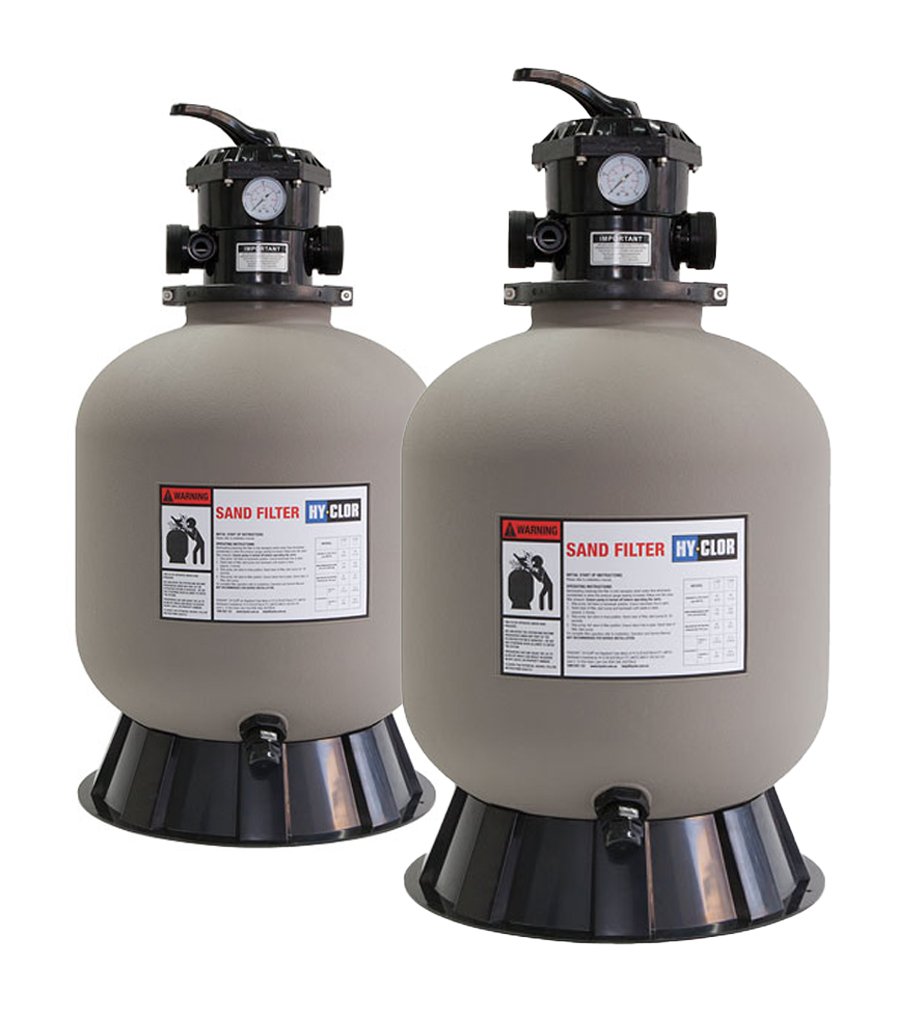Swimming pool filter sand needs replacing every seven to 10 years. Is it time to replace yours? If so, you may wonder, what is the best sand for my pool filter?
Choosing the right pool filter sand can make a big difference in the efficiency and longevity of your filter. This guide will dive into the top options for replacement pool filter sand. We’ll find out what types of filter media work for sand filters and what grade of sand is best. And the critical answer to the commonly asked question, ‘can I use non-pool sand in my filter?
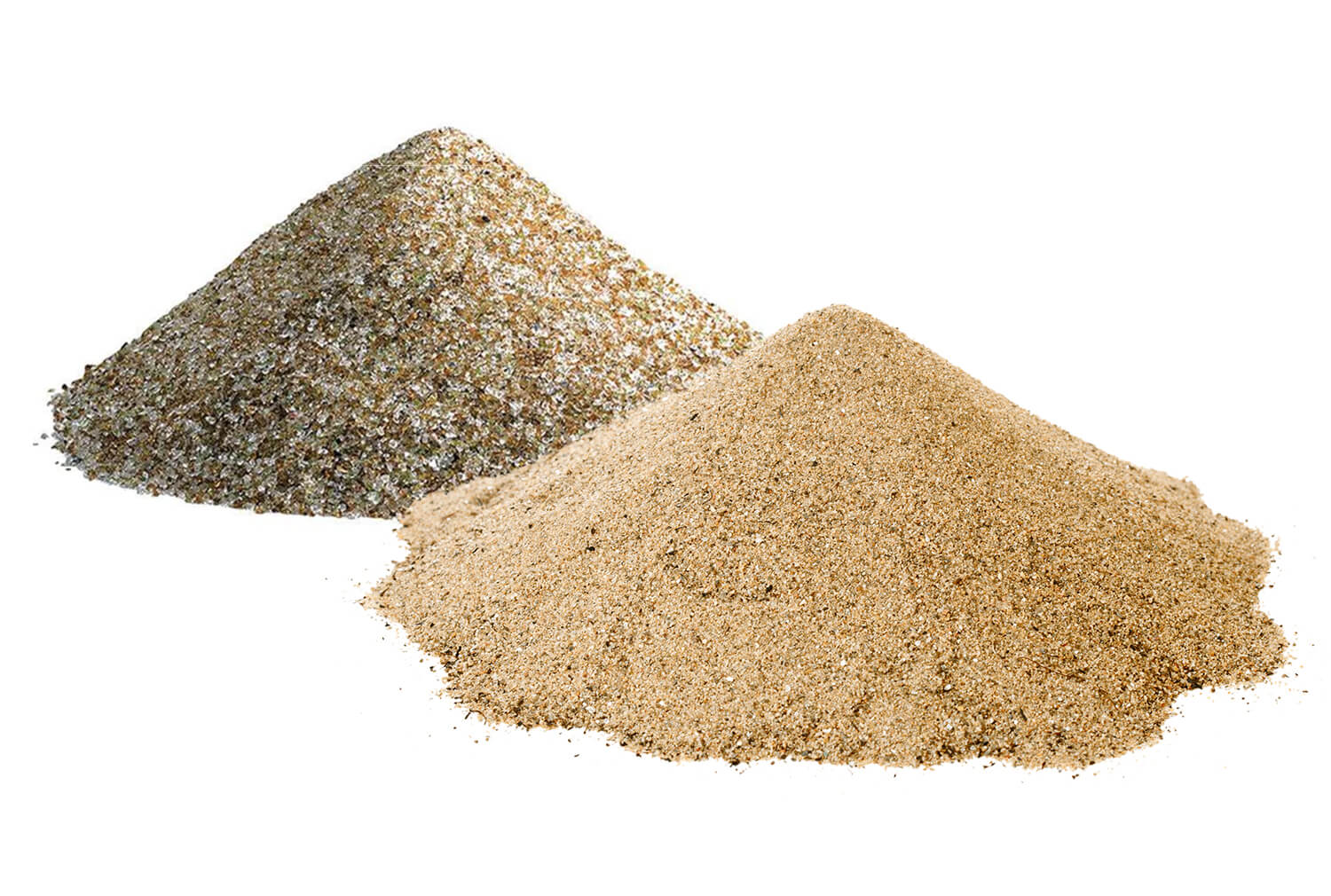
What Types of Filter Media Work for Sand Filters?
Sand, glass, and zeolite are the most common filter media (or materials) used in sand filters. Let’s find out what makes each of them unique and answer the question, what is the best sand for pool filters?
Sand
Sand is a natural, inexpensive, and effective option used in pool filters for decades. Its small and angular particles trap dirt and debris as water flows through the filter.
Glass Balls and Crushed Glass
Glass balls or beads are made of recycled glass. They have a higher density than sand, allowing them to trap smaller particles. Glass balls are also more durable and resistant to crushing and wear, extending your filter’s lifespan.
Crushed Glass is typically recycled glass that is ground down to coarse and fine particles. They are not as perfect as beads but offer a significantly cheaper option as they are more readily available.
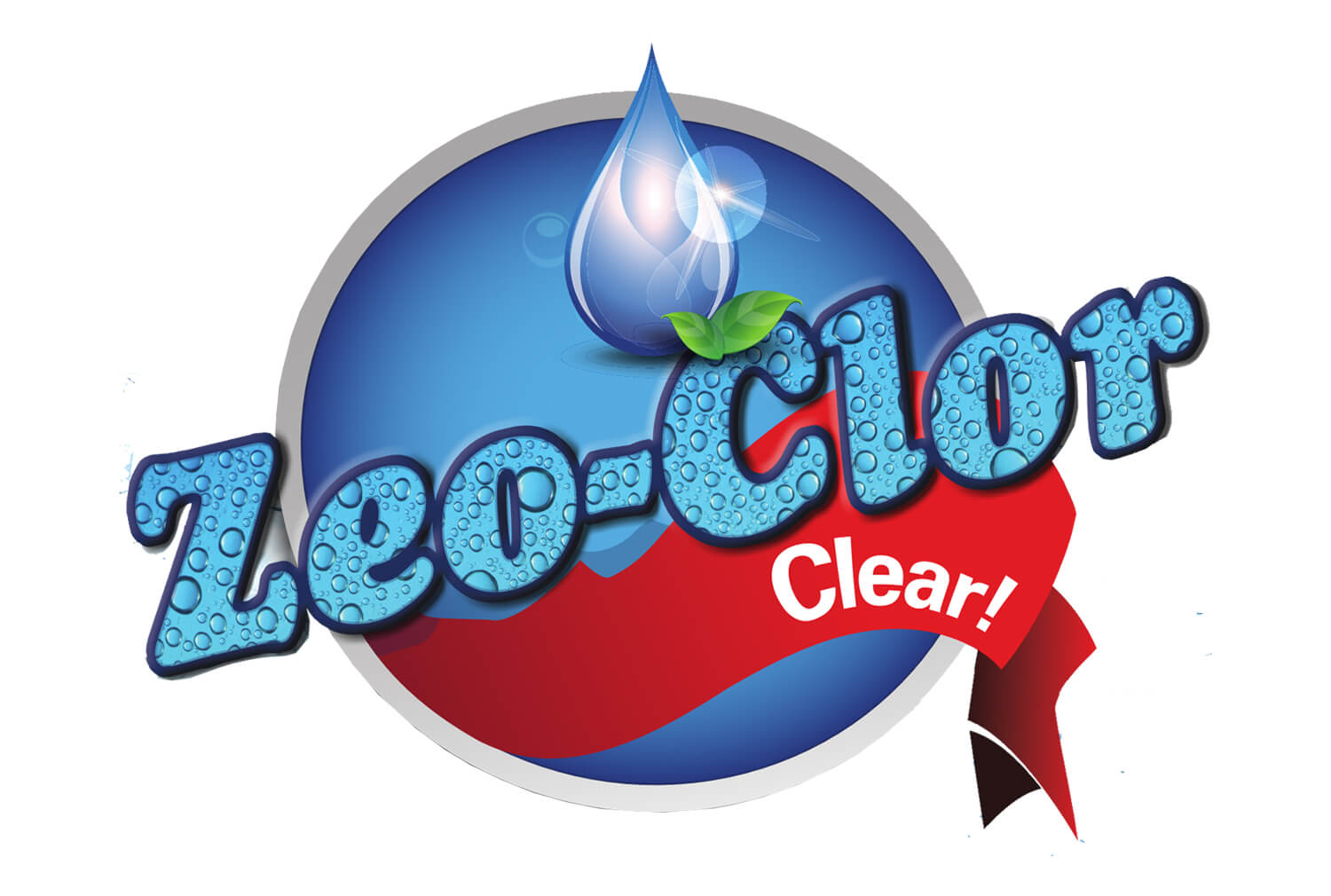
Zeo-Clor
At Hy-Clor, we recommend our Zeo-Clor product as the best choice for your sand filter. It’s made up of zeolite, a naturally occurring mineral that removes impurities from water. Zeo-Clor is an environmentally safe sand filter media that works in all sand filters. Other advantages include
- Reducing pool odours and red eyes in swimmers.
- Providing superior water clarity as it filters finer than regular filter sand.
- Increasing the efficiency of other pool chemicals.
- Cutting the need for backwashing by up to 50%.
- Lowering the overall operating cost of your pool.
- A considerably longer life span than other pool sand media, requiring less frequent changes.
Sand, glass, and Zeo-Clor are all effective pool filter sand replacements. Ultimately, the choice will depend on the specific needs of your pool and filter.
What Grade of Sand Is Best for Pools?
There are different grades of sand that you can use in your filter. It’s important to note that the particle size should match the specifications of your filter.
- 20 Silica Sand is the most common type of sand used in pool filters. Its small, angular particles trap dirt and debris as water flows through the filter. The number 20 refers to the size of the grains, which are between 0.45mm and 0.55mm in diameter.
- 20/40 Silica Sand has a wider range of grain sizes, between 0.45mm and 0.85mm. It’s more versatile and suitable for different types of filters.
- 30/50 Silica Sand has larger grains, between 0.6mm and 1.2mm in diameter. Their size makes them better at trapping larger particles.
- 45/70 Silica Sand has the largest grains, between 0.85mm and 1.7mm in diameter.
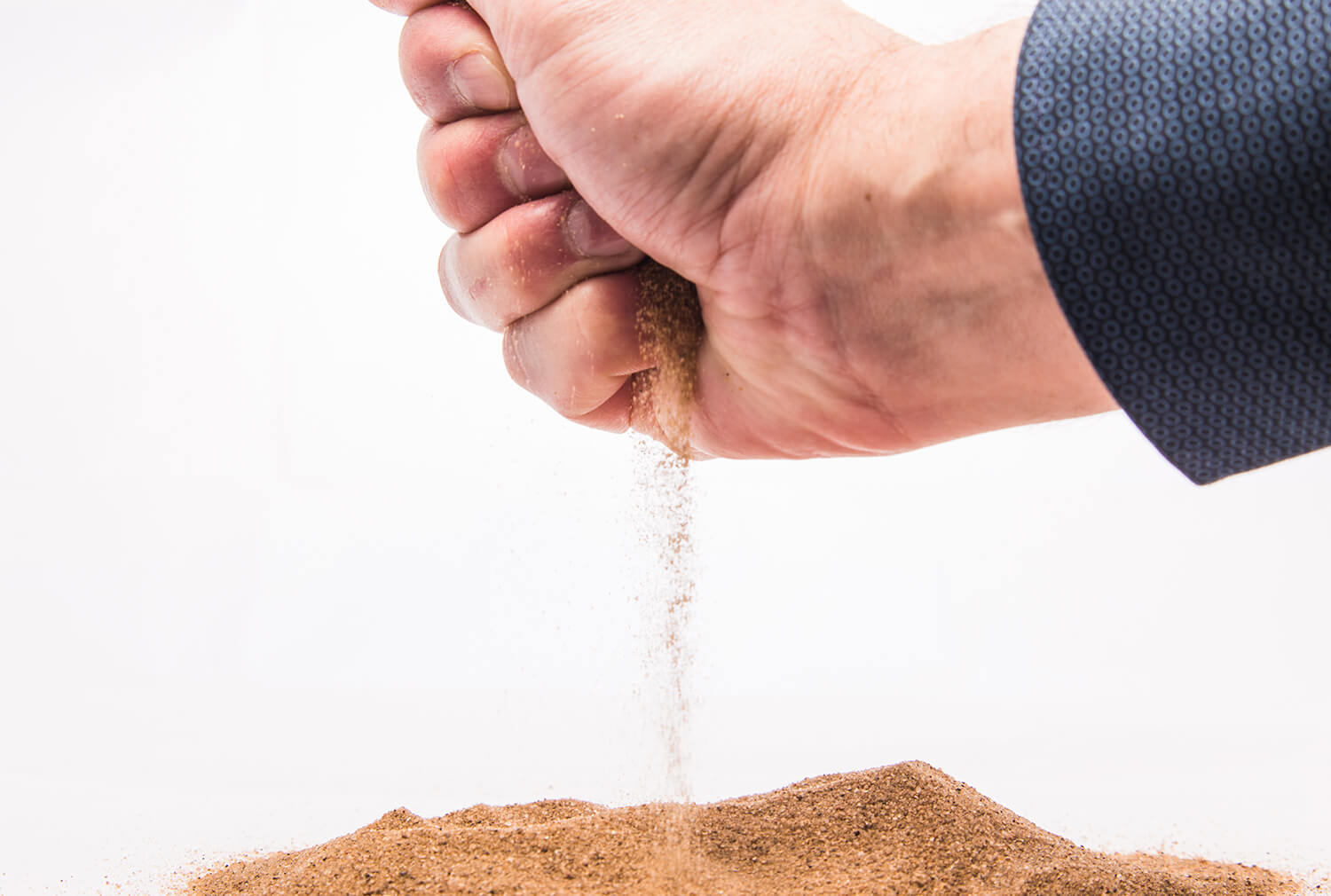
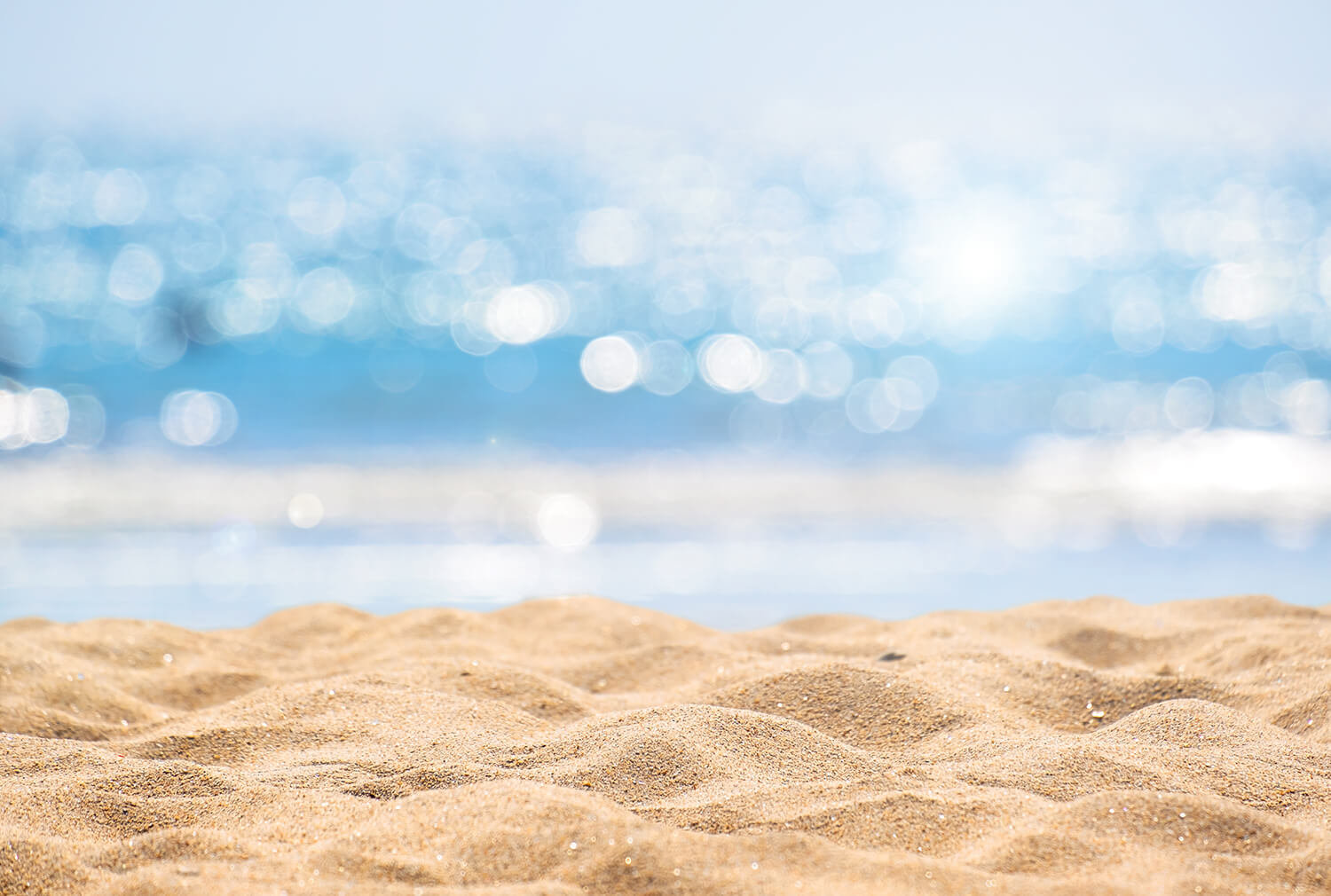
Can I Use Non-Pool Sand in My Filter?
Using non-pool sand in your pool filter is not recommended! Pool filter sand is designed specifically for filtration to keep your pool clean and safe. Here are some types of sand people sometimes try to use as swimming pool filter sand and why it’s a bad idea.
Do Not Use: Masonry Sand
Masonry sand has larger grain sizes and does not allow for the efficient filtration of particles, leading to cloudy water and poor water quality. It’s made of crushed rock and may contain impurities such as clay, silt, or dust that can cause damage to your pool filter.
The chemical composition of masonry sand can contain high levels of iron, manganese, and other minerals that can cause discolouration of your pool and harm swimmers.
The grain size of masonry sand is incompatible with sand filters, leading to clogging and reduced filter efficiency. So, masonry sand is not the best sand for pool filters.
Do Not Use: Play Sand
Play sand is also not designed for pool filters. It has a different grain size than pool filter sand which does not match pool filters. Using incorrect sand size can damage your filter and cause the need for a filter replacement.
Play sand may contain high levels of heavy metals such as lead that can be dangerous if ingested by people or pets. It can also cause cloudiness in your pool water and damage pool equipment.
Using the correct type of sand for pool filters will ensure your filter’s best performance. We recommend using only suitable swimming pool filter sand to avoid potential issues and keep your pool safe for swimming.
Choose the Best Sand for Your Filter
The best types of sand for your filter are those designed specifically for swimming pool filters, like pool filter sand, glass balls, and zeolite, like our Zeo-Clor.
If you’re wondering what is the best sand for pool filters, we’re here to help. Our team of experts at Hy-Clor will help you discover how our high-rate pool sand replacements can help provide the perfect filtration for your pool.
For more information, get in touch with us today via our online enquiry form. Alternatively, please call us on 1800 625 123 if you’re in Australia or (09) 973 2477 if you’re in New Zealand. We encourage our customers to visit their nearest Bunnings Warehouse to see the full range of HyClor products.
